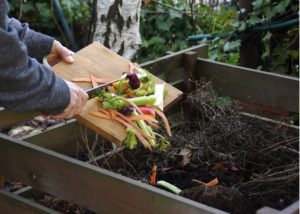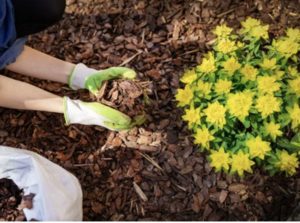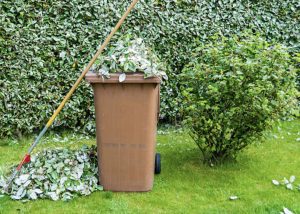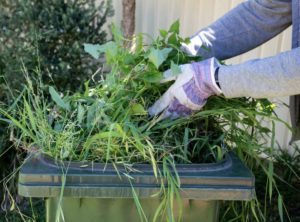Gardening can be a fulfilling and enjoyable activity but can also generate significant waste. Leaves, branches, and grass clippings are the three most common types of garden waste, and disposing of them can be a challenge for both home gardeners and commercial landscapers. Fortunately, several eco-friendly methods of garden waste disposal can help reduce the impact of gardening on the environment. This blog post will provide tips and guidelines on how to dispose of garden waste in an eco-friendly way.
IslandEarth Landscape Company is a leading landscaping company providing services to Vancouver Island clients. The company has been in business for several years and has built a reputation for providing high-quality landscaping services tailored to meet each client’s unique needs. Their team of experienced landscapers is dedicated to delivering exceptional results and ensuring clients are delighted with their work. IslandEarth Landscape Company offers various services, including landscape design, installation, and maintenance, irrigation system installation and repair, hardscaping, and more. With a commitment to eco-friendly and sustainable practices, IslandEarth Landscape Company is an excellent choice for creating beautiful outdoor spaces while minimizing their environmental impact.

Composting
Composting is the most popular eco-friendly method of garden waste disposal. It involves collecting organic materials such as leaves, branches, and grass clippings and allowing them to decompose into nutrient-rich compost. Compost can be used as a natural fertilizer for your garden, reducing the need for chemical fertilizers. To start composting, you will need a compost bin or pile, which can be made from various materials such as wood, plastic, or wire mesh. To speed up the decomposition process, you can add food scraps, coffee grounds, and other organic materials to your compost pile. Composting is an easy and effective way to dispose of garden waste, and it can significantly improve the health of your soil.

Mulching
Mulching is another eco-friendly method of waste disposal that involves spreading a layer of organic material, such as leaves or grass clippings, over your garden soil. Mulch helps retain moisture in the soil, reduces weed growth, and improves soil structure. To mulch your garden, you can use a lawn mower to chop up your leaves and grass clippings into small pieces, which can be spread over your garden beds. Mulching is a great way to dispose of garden waste while improving soil health.

Recycling
Recycling garden waste is another eco-friendly option. Many cities offer curbside collection of yard waste, which is then taken to a composting facility, where it is turned into compost. This option is convenient for those needing more space or time to compost their garden waste. Some cities also offer free mulch made from recycled yard waste, which can be used in your garden.

Benefits of eco-friendly garden waste disposal
Eco-friendly garden waste disposal has several benefits. Composting and mulching can improve soil health by adding organic matter and nutrients to the soil. This can help reduce the need for chemical fertilizers, which can be harmful to the environment. Composting and mulching also reduce the amount of waste that ends up in landfills, which can help reduce greenhouse gas emissions. Recycling garden waste can also help reduce the amount of waste sent to landfills and provide a source of free mulch for your garden.
References and resources
Several resources are available if you want to learn more about eco-friendly gardening practices and the benefits of composting, mulching and recycling garden waste. The Environmental Protection Agency (EPA) provides information on composting and mulching and a list of resources for finding composting facilities and programs in your area. The National Gardening Association also includes information on composting and mulching, as well as a variety of other gardening topics. Your local garden center or extension office can also provide information on your area’s eco-friendly gardening practices and resources.
In conclusion, disposing of garden waste in an eco-friendly way is important for the health of our environment. Composting, mulching, and recycling are all effective methods of garden waste disposal that can reduce the impact of gardening on the environment. Home gardeners and commercial landscapers can help protect the environment by following these tips and guidelines while maintaining healthy and vibrant gardens.